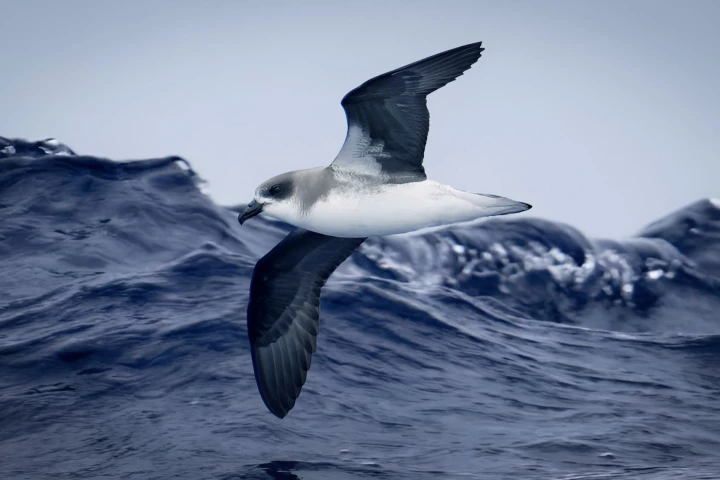Woods Hole Oceanographic Institution
-
You may not think of fish as being noisy, but they can actually be a pretty vocal bunch. A new AI system is able to quickly identify specific fish calls within general reef noise, allowing scientists to better track local populations.
-
A daredevil seabird species has learnt to harness the insane power of hurricanes, seeking out storms over the ocean to 'ride' them for their own benefit. It's the first time this behavior has been observed, and now has scientists wondering if it's far more widespread in the avian world.
-
The tracking of squid and other soft-bodied sea creatures may soon be a lot more doable, thanks to a new bioadhesive interface. It's claimed to be much gentler than current attachment methods, while still remaining up to the task.
-
Scientists have discovered that audio recordings of healthy coral reefs may help attract free-swimming coral larvae to damaged ones. The finding could be a major step toward preserving the world's coral reefs.
-
Love it or hate it, but the way humans modify their speech when they communicate with their young offspring, commonly known as "baby talk," has now been recorded among bottlenose dolphin mothers. It's the first time it's been heard, too.
-
In 1986 it got up close to the Titanic, and now deep-sea explorer Alvin is achieving more world firsts, this time documenting 1.2 miles of new reef featuring live coral that's thousands of years old. Scientists hope it's the first of many to be found.
-
In the same week that record-setting temperatures were logged in East Antarctica, satellite images have revealed the complete collapse of its Conger Ice shelf, a first for the region and a potential sign of things to come, according to experts.
-
Marine life near the surface of the ocean is much different than that which lives in the deeps. In order to get a better understanding of how those regions differ, scientists have created a biological probe that free-falls through the water.
-
The world’s oceans play an important role in regulating the balance of CO2 in the atmosphere, but a new study suggests we may have been greatly underestimating the effectiveness of this vast carbon sink.
-
We keep finding life thriving under conditions we’d previously ruled out. The latest example comes from studies of rock cores drilled from the floor of the Indian Ocean, where microbes were discovered alive and well under almost half a mile of rock.
-
While underwater remotely-operated vehicles (ROVs) certainly are useful, manually controlling the things via a console can be quite a painstaking task. That's why researchers have now enabled one to autonomously gather samples from the ocean floor.
-
Scientists have used a drone to calculate the weight of live whales as they're swimming.
Load More











